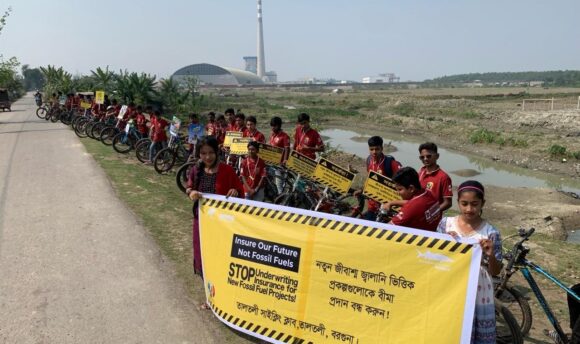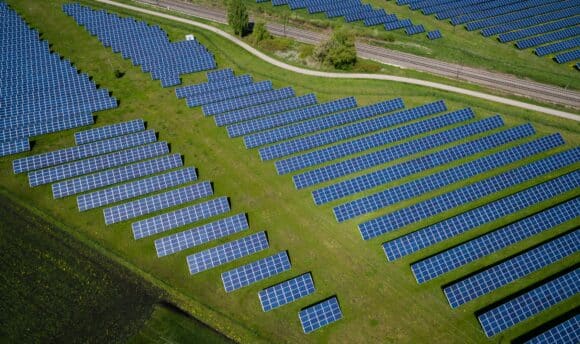As the climate crisis becomes ever more tangible, insurers are rapidly exiting coal. Australian coal companies have now developed a plan to self-insure the massive risks of their operations. The scheme smacks of desperation.
More than 30 major insurance companies from around the world have adopted policies to no longer insure new coal projects and in many cases, to phase out their cover for existing coal operations. And 40 insurers have ruled out insuring the Adani Group’s giant Carmichael coal mine in Australia.
The withdrawal has had a massive impact on the coal industry in Australia, the United States and other countries. Lack of insurance has now “gotten to be the No. 1 issue that our members face”, a coal lobbyist in North Dakota commented in January. And BMD, a company which is building the railway line for the Carmichael coal mine, reported in May that it tried to negotiate liability insurance for its project with 33 carriers but failed to secure any cover.
Australian coal companies are now considering a plan to pool their funds and set up a mutual insurance company to cover their projects and operations. As the Sydney Morning Herald reported today, mining representatives are engaged in discussions with Picnic Labs, a company which sets up insurance mutuals, to create such a self-insurance scheme. A pool of AUD 20-50 million (USD 15-38 million) would allow coal companies to “control their own destiny”, a Picnic Labs representative commented.
Any plan by the coal industry to self-insure its risks will face a number of serious challenges.
Picnic Labs, the company which the Australian coal companies sought out to set up their insurance vehicle, is not an established industry player. It has so far only created one mutual insurance called Our Ark Mutual, which serves religious organizations, non-profits and other community-oriented groups. These existing policy holders may not be excited to learn that their service provider is also working to underwrite climate disaster.
The Anglican Diocese of North Queensland for example, which Our Ark Mutual quotes as a happy policy holder on its website, warned against “projected mega-mining developments” in the region already in 2017.
Picnic Labs recently set up a syndicate at Lloyd’s, which it hopes will allow it to attract more capital. This syndicate will only become operational in 2022. Yet the coal policy which Lloyd’s adopted in December prohibits Lloyd’s insurers to take on new coal customers beyond 2021.
The coal industry is not known for its deep pockets. Any self-insurance scheme which is based on its meagre capital base will require a lot of reinsurance to absorb the massive risks of operating coal mines and power plants. Yet Swiss Re, Munich Re, Hannover Re, SCOR, Lloyd’s and many other reinsurance companies have pledged that they will no longer reinsure new coal projects and phase out existing operations. These reinsurers, which at the end of 2020 controlled 56% of the global market, should make clear that they will honor their climate commitments and rule out involvement in a mutual whose explicit purpose is to throw a lifeline to the coal industry.
Finally, even if Picnic Labs claims that a mutual insurer would allow Australian coal companies to “control their own destiny”, the new vehicle would depend on generous public subsidies. In a submission to the Australian parliament, Picnic Labs suggested that the taxpayer-funded Northern Australia Infrastructure Facility should help set up a mutual for the country’s coal industry.
Insurance companies are not simply withdrawing from coal to protect their public brands. They have financial self-interests to do so. Moody’s Investors Services pointed out last year that by pulling out of coal, insurers can avoid holding the bag for the legal risks that fossil fuel companies face as hundreds of climate lawsuits are making their way through the courts. Societe Generale, the French bank, even put a premium on the shareholder value of insurers with strict coal exit policies.
Government institutions should think twice before taking on risks which the world’s leading commercial insurers are no longer prepared to underwrite. They should rather invest their resources in a just and fair transition to the energy solutions of the 21st century.
The latest IPCC report “must sound a death knell for coal and fossil fuels, before they destroy our planet”, UN Secretary General Antonio Guterres warned earlier this week. Requesting public support for a self-insurance fund is a desperate ploy by an industry which has lost its social and economic license to operate.
As Pablo Brait of the Australian campaign group Market Forces said, “coal companies should be planning for a rapid managing-down of their coal mining activities in line with the goals of the Paris Agreement instead of wasting precious time creating an insurance mutual”.



